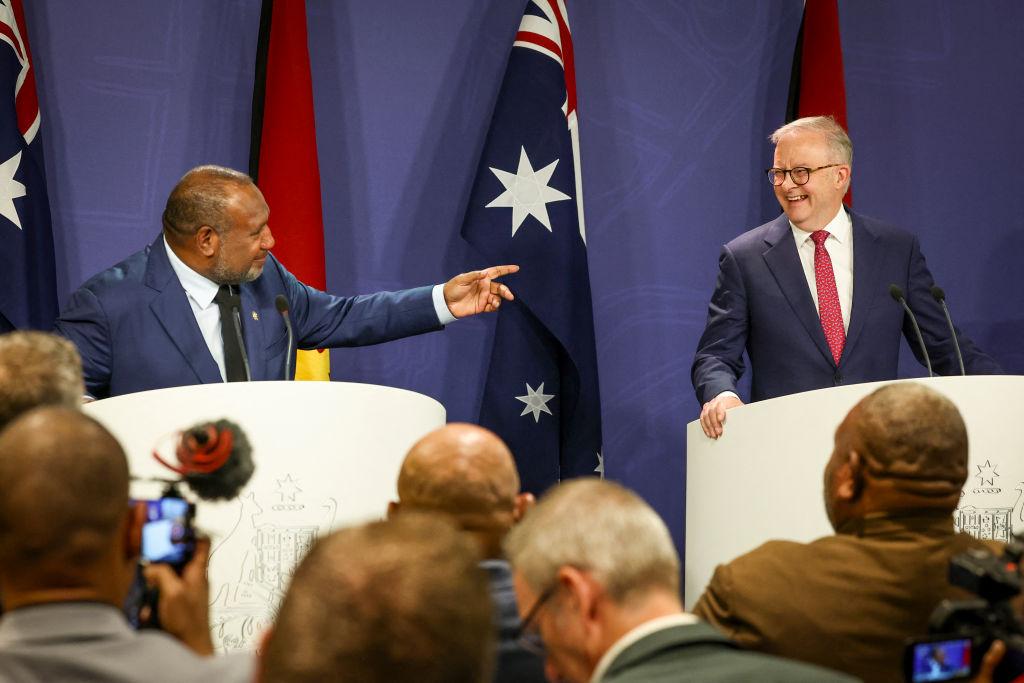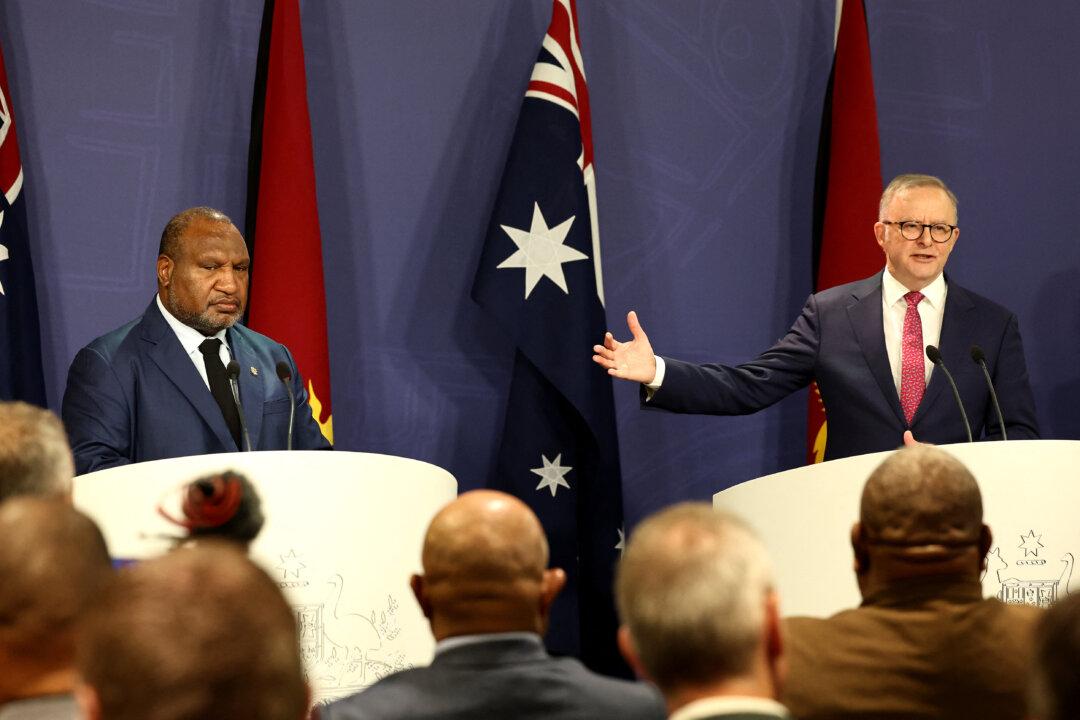Businesses, health experts, and political leaders are urging Australians to stay calm after media focus on the new Omicron variant of COVID-19 fueled fears Australia could see the return of harsh health restrictions.
Jennifer Westacott, CEO of the Business Council of Australia said on Nov. 28—the same day that New South Wales (NSW) Health confirmed two positive cases of Omicron in Sydney—that she did not wish to see any overreaction to the new strain.
“The worst thing we can do is panic,” Westacott told 3AW radio. “The worst thing we can do is stall the economic momentum, particularly for small business.”
She also noted that the Australian state and federal governments should have enough experience in handling the virus and shouldn’t need to implement any tough health restrictions including lockdowns or domestic border closures.
And Westacott is not alone in voicing these sentiments.
Graham Turner, CEO of Flight Centre, the country’s largest retailer of travel—which has been battered by border closures and lockdowns—has also called for calm and for the reopening of Australia’s borders to remain on track.
“As everyone said, these variants are going to happen,” he told the Today show. “They’re going to happen every few months, every six months, every year, so we just have to learn to live with it and move on and keep the plans open.”
“I think that’s a really important thing that we just don’t get carried away. We look at the science, on the facts, and not act on emotion.”
Additionally, Innes Willox, CEO of the Australian Industry Group also urged people not to jump in fear every time a new COVID-19 variant is found.
“We need to avoid jumping at shadows as every new COVID variant appears,” Willox said in a statement to The Epoch Times.
“COVID-19 is in the community whether it is Delta or omicron or whatever the next variant will be. Rather than more stimulus, the best support for business will come from sticking to the living with COVID plan and keeping our state and international borders open.”
Willox also warned that the country was suffering a skills shortage due to lack of migration over the past two years and any further introduction of border restrictions would put pressure on business and the economy.
Prime Minister Scott Morrison has pledged to continue the path towards reopening the country around Christmas. In the meantime, the reopening of international borders will be delayed by two weeks while authorities gather information around the variant.
“Their symptoms were so different and so mild from those I had treated before,” Dr. Angelique Coetzee said.
“It presents mild disease with symptoms being sore muscles and tiredness for a day or two not feeling well,” Coetzee explained. “So far, we have detected that those infected do not suffer the loss of taste or smell. They might have a slight cough. There are no prominent symptoms. Of those infected some are currently being treated at home.”
Further, the World Health Organisation has criticised the countries who have shut their borders to African nations with WHO’s regional director for Africa, Matshidiso Moeti, saying countries should just use international health regulations in order to avoid using travel restrictions.
“Travel restrictions may play a role in slightly reducing the spread of COVID-19 but place a heavy burden on lives and livelihoods,” Moeti said in a statement. “If restrictions are implemented, they should not be unnecessarily invasive or intrusive, and should be scientifically based, according to the International Health Regulations, which is a legally binding instrument of international law recognized by over 190 nations.”
Meanwhile, David Flint, emeritus professor of law and former chair of the Australian Broadcasting Authority, said it was “regrettable” that the reports of the new variant had been reported in what he termed a “hysterical” manner.
“It seems clear that some will use it for political purposes,” he told The Epoch Times in an email.
“We should surely realise by now that the politicians overreacted in terms of internal border closures and the imposing of lockdowns.”
The variant from southern Africa has been the subject of intense media coverage since its emergence in Australia over the weekend.
Dominic Perrottet, premier of NSW, warned the country against dividing itself again through a variety of responses and called for coordination.
“Ultimately, we need to open up to the world ... we don’t need a knee-jerk reaction,” he told reporters.
“We’ve got to learn to live alongside the variants of the virus that come our way.”





